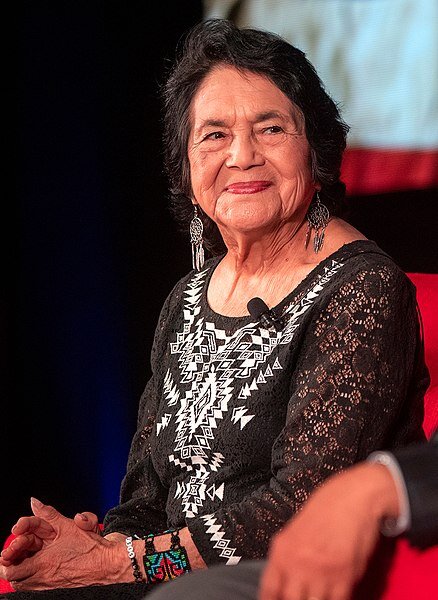Today is the final day of National Hispanic Heritage Month, and we are highlighting prominent attorneys of Hispanic or Latin American heritage. “According to statistics from the Hispanic National Bar Association (HNBA),” NBC News reports, “Hispanics – who are 18 percent of the population – comprise about 4 percent of U.S. lawyers. For Latinas, these numbers are even smaller; Latinas account for less than 2 percent of American lawyers.” Though these terms are sometimes used as if they were synonyms, “Hispanic” refers to descendants of Spanish speaking populations, whereas “Latina/o/x” refers to descendants of any Latin American population.
Ted Cruz is not only a United States Senator from Texas, but by any measure he is also one of the most accomplished attorneys in the United States. A Cuban American, and a Houstonian from his youth, Cruz earned his JD at Harvard Law, where he was a Primary Editor of the Harvard Law Review, and was a founding General Editor of the Harvard Latino Law Review. Cruz clerked for a time after graduation, culminating in a year clerking for Chief Justice William Rehnquist. He was the first Hispanic clerk to a Chief Justice in history. Still in his 20s, Cruz entered private practice while becoming known as a rising star in conservative politics. In the year 2000, he served as an advisor to then-Presidential-candidate George W. Bush. In 2003, he became Texas Solicitor General, and over the five years in that role argued an incredible eight cases before the Supreme Court. After another stint in private practice, Cruz was elected Senator in 2013, and re-elected in 2017. He has spent his time in that body spearheading the fight to repeal the Affordable Care Act, and passionately championing various conservative causes.
Sonia Sotomayor comes from the other side of the country and, as an Obama appointee, the other side of the political spectrum. Raised in the Bronx, she is of Puerto Rican descent. Like Senator Cruz, Justice Sotomayor earned her Bachelor’s degree at Princeton University. She obtained her JD from Yale Law, where she served as an Editor on the Yale Law Journal and co-chaired the Latin and Native American Students Association. Upon graduation, she was hired on as an Assistant District Attorney for the Manhattan District in New York, then entered private practice five years later as an intellectual property attorney. Sotomayor was appointed to the Federal bench by President George H. W. Bush in 1991, where she gained notoriety as the judge who saved Major League Baseball in 1995. In 1997, she was appointed to the Second Circuit by President Clinton, and then to the Supreme Court by President Obama in 2009.
Sandra Guerra Thompson is the Newell H. Blakely Professor in Law and Director of the Criminal Justice Institute at the University of Houston Law Center, a powerhouse in the Houston legal scene, and one of the most prominent figures in American criminal justice reform. A native of Laredo, like Senator Cruz and Justice Sotomayor she is a double Ivy League graduate; she obtained both her Bachelors and her JD from Yale. Then-Mayor-of-Houston Annise Parker appointed her as a founding Director on the Board of the Houston Forensic Science Center. Professor Thompson is an elected member of the American Law Institute, and took a high profile role in the fight for bail reform here in Harris County. Recently, she has been at the forefront of the movement to raise accountability for law enforcement involved in shootings. This past Tuesday, Houston Mayor Sylvester Turner presented her with the Hispanic Heritage Education in the Community Award.
Further Reading:









